• We have new and third-party validated EPDs
EPDⓘ (Environmental Product Declaration). Our new documents, which you can download here, are now based on current and more detailed databases, and of course on the following improvements.

Home » Sustainability » Commitment
We are committed every day to creating a more sustainable future; we do this in a responsible manner by involving all the people who are part of Artigo, so that they understand the need to actively participate in the change towards a virtuous business model.
We want to continue to be an important reference in the field of flooring. That’s why we’re determined to reach new heights: our goal is to constantly improve internal processes and production in an innovative and sustainable way.

With the purpose of further improving its corporate journey towards sustainability, Artigo has submitted its Targets to SBTiⓘ (Science Based Targets initiative), a corporate climate action organisation that enables companies and financial institutions worldwide to play their part in combating the climate crisis.
Science-based targets provide companies with a clearly-defined path to reduce emissions in line with the Paris Agreement goals (limiting global warming to 1.5°C above pre-industrial levels).

1. TO REDUCE absolute Scope·1ⓘ GHGⓘ emissions 46,2%

2. TO CONTINUE active annual sourcing 100% renewable electricity through 2030


4. TO REDUCE Scope·3 GHG emissions from waste generated in operations 55% per tons of finished products
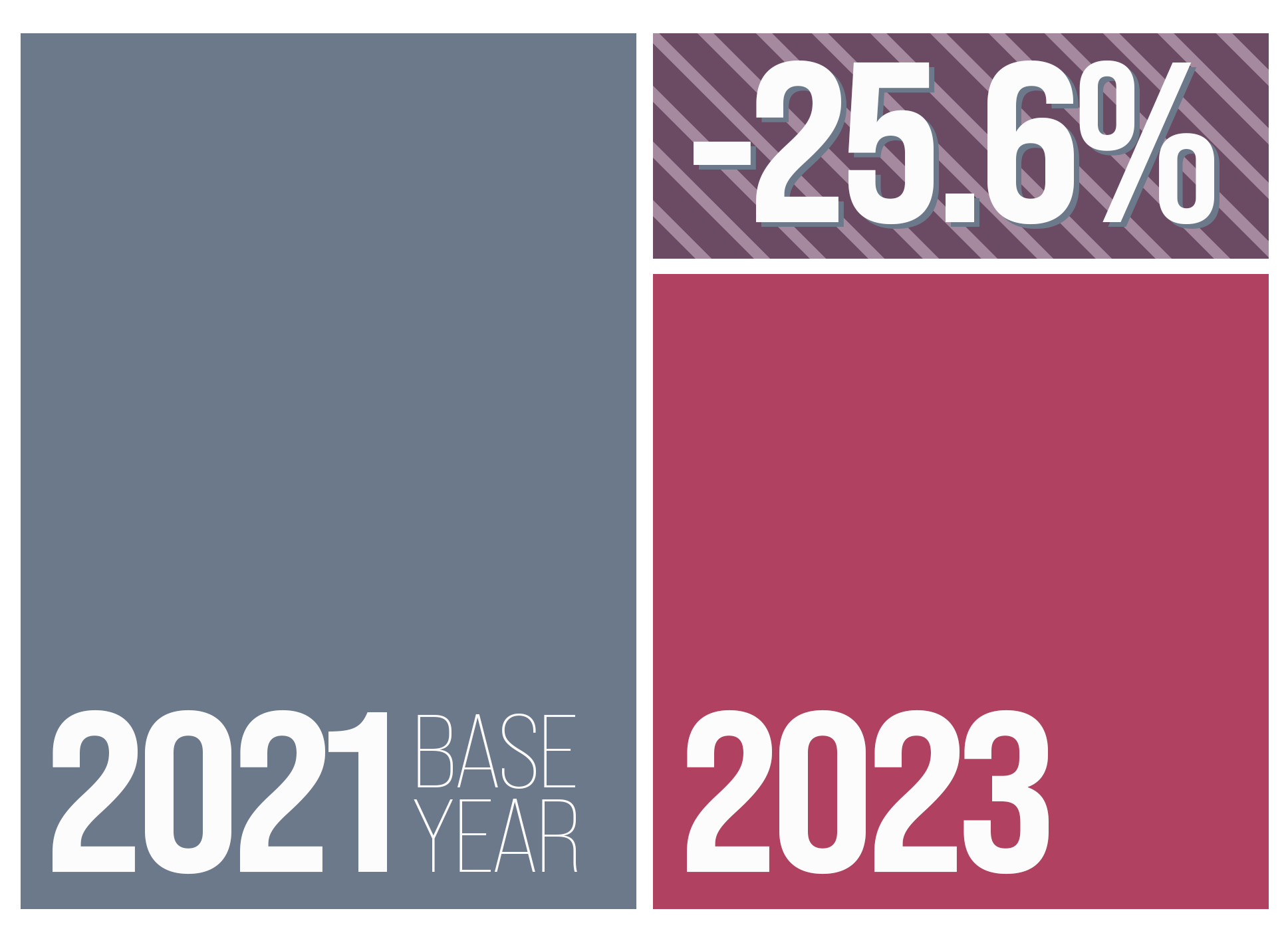
In the year 2023 we achieved an overall reduction in emissions equal to 4,591 tCO2
A –25,6 % reduction compared to our base year 2021.
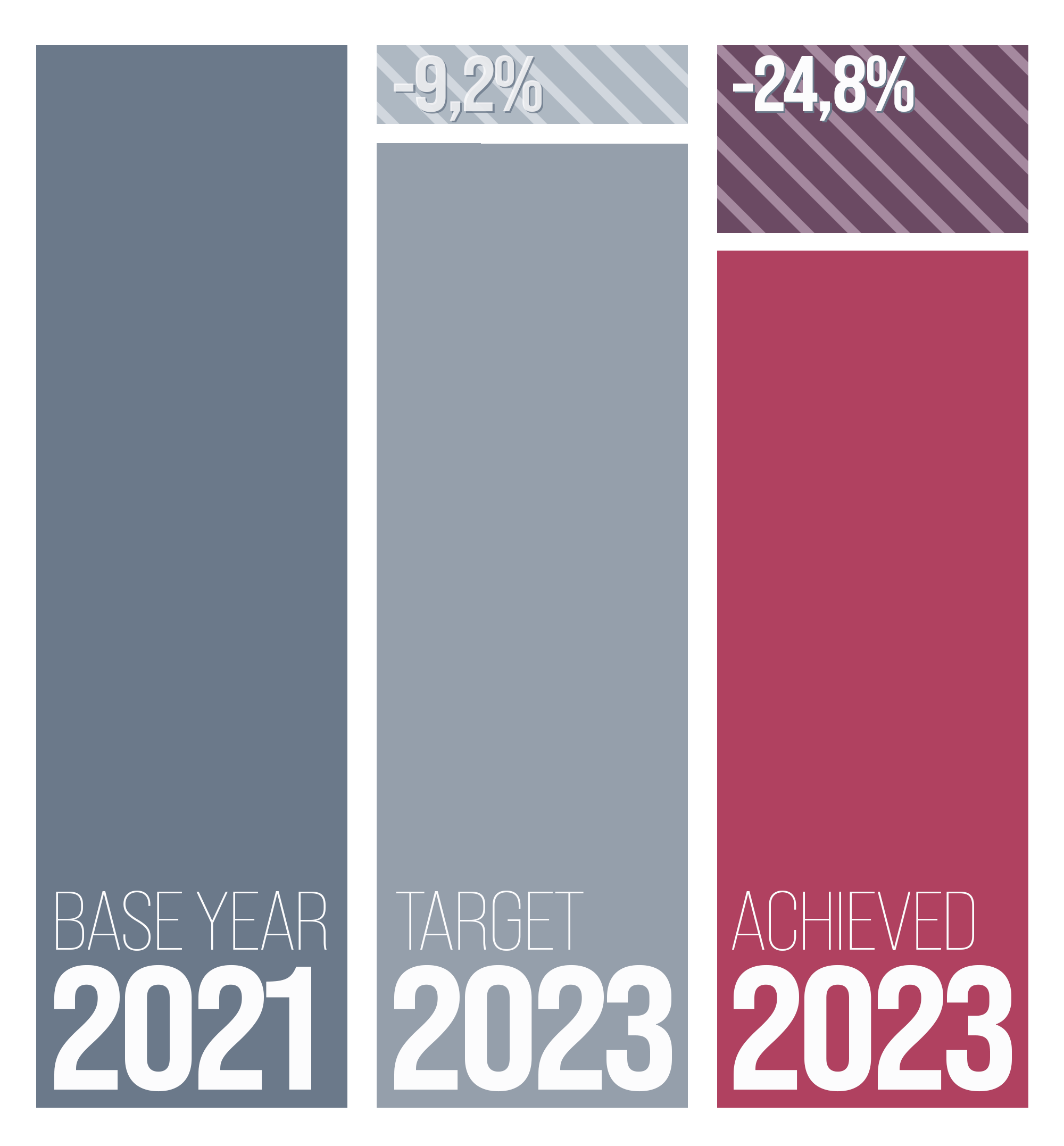
In the year 2023 we achieved a Scope 1 + Scope·2ⓘ reduction in emissions equal to 275 tCO2 equivalent to -24,8 % compared to our base year 2021.
It is worth mentioning that, according to our plan approved by SBTi, it would have been sufficient a reduction of –9,2%.
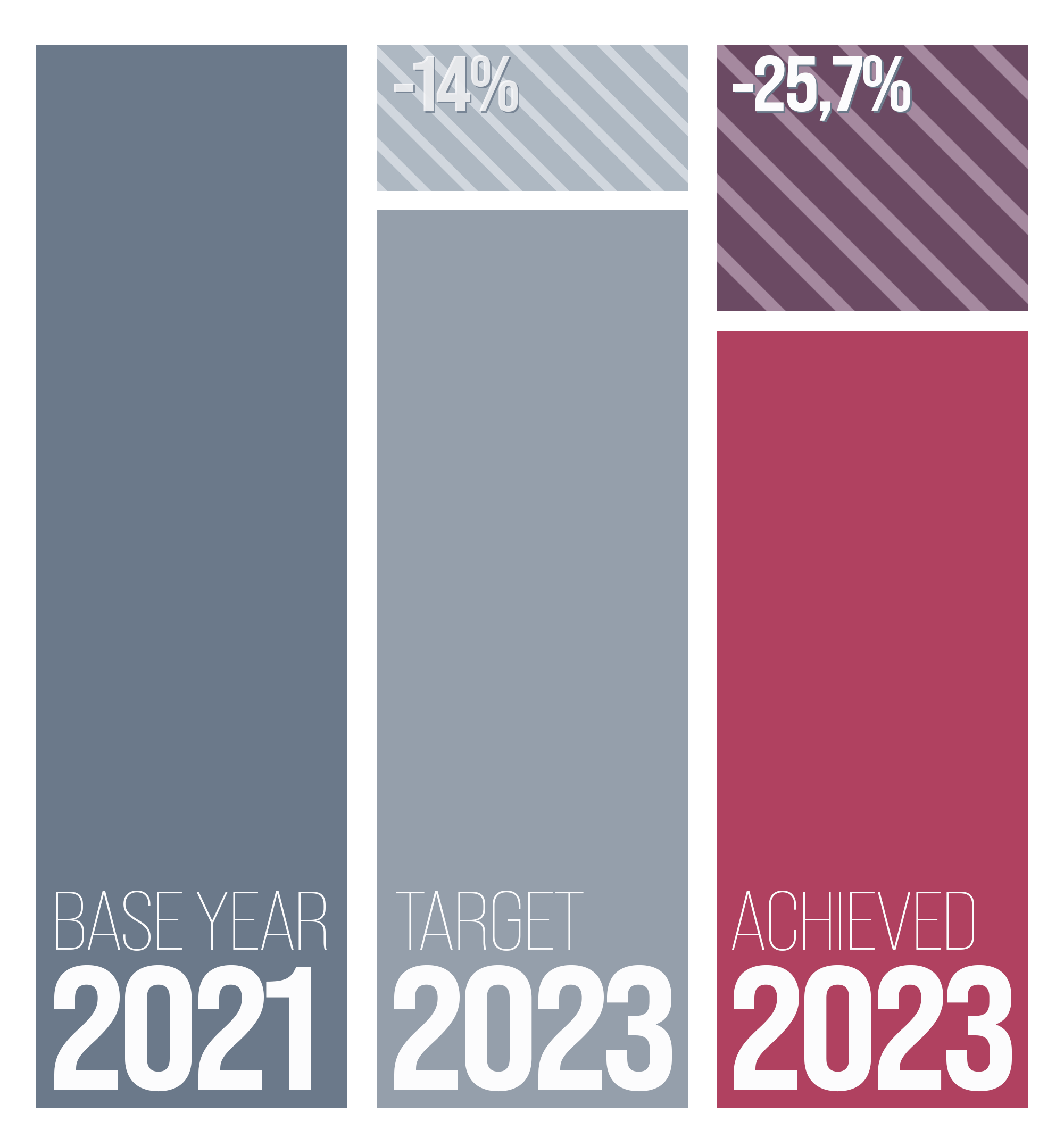
In the year 2023 we achieved a Scope 3 reduction in emissions equal to 4316 tCO2 equivalent to -25,7 % compared to our base year 2021.
It is worth mentioning that, according to our plan approved by SBTi, it would have been sufficient a reduction of –14%.
ESGⓘ (Environmental, social, and governance) is an important step on the path to sustainability we decided to undertake.
The assessment is a measurement and evaluation tool developed by TECNO ESG SB that refers to the GRIⓘ (Global Reporting Initiative) by which it has been validated and certified. It acts as a guide towards greater awareness of corporate sustainability, allowing us to intervene efficiently in the areas that need more attention.
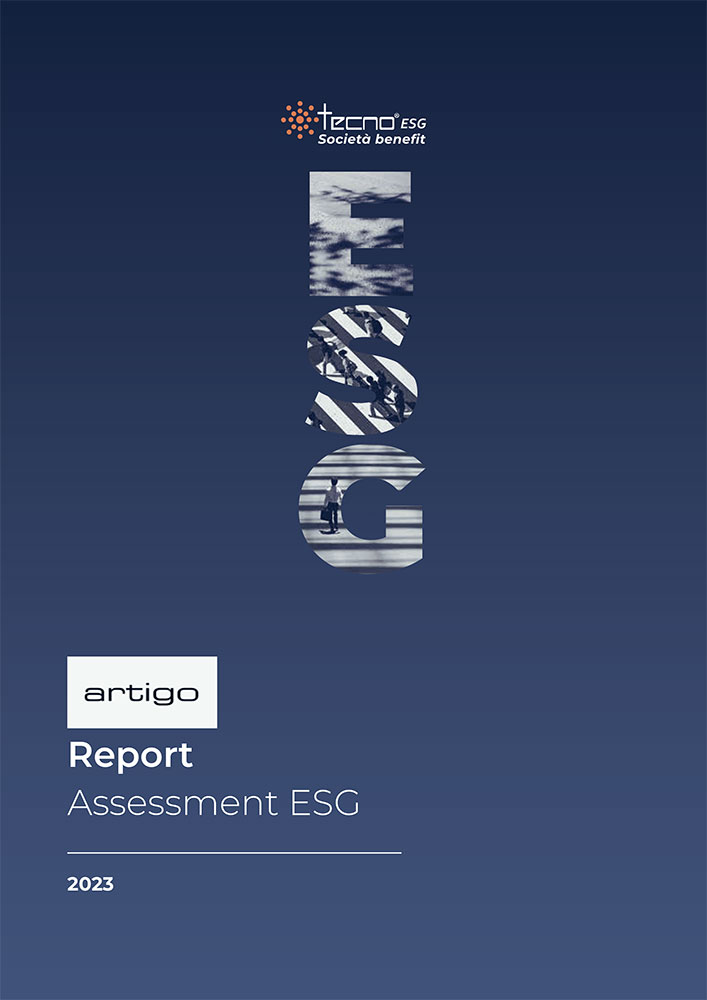
EPDⓘ (Environmental Product Declaration). Our new documents, which you can download here, are now based on current and more detailed databases, and of course on the following improvements.
We have introduced in our recipe Marble Powders – wastes from marble extraction from Carrara Quarries – instead of Calcium Carbonate, which means:
a) no need to firsthand mine for material
b) reuse of industrial waste

We incorporate into our flooring different kinds of wastes, pre- and post-processed: raw compounds; grinded off-cuts and trimmings; raw and cured powders.
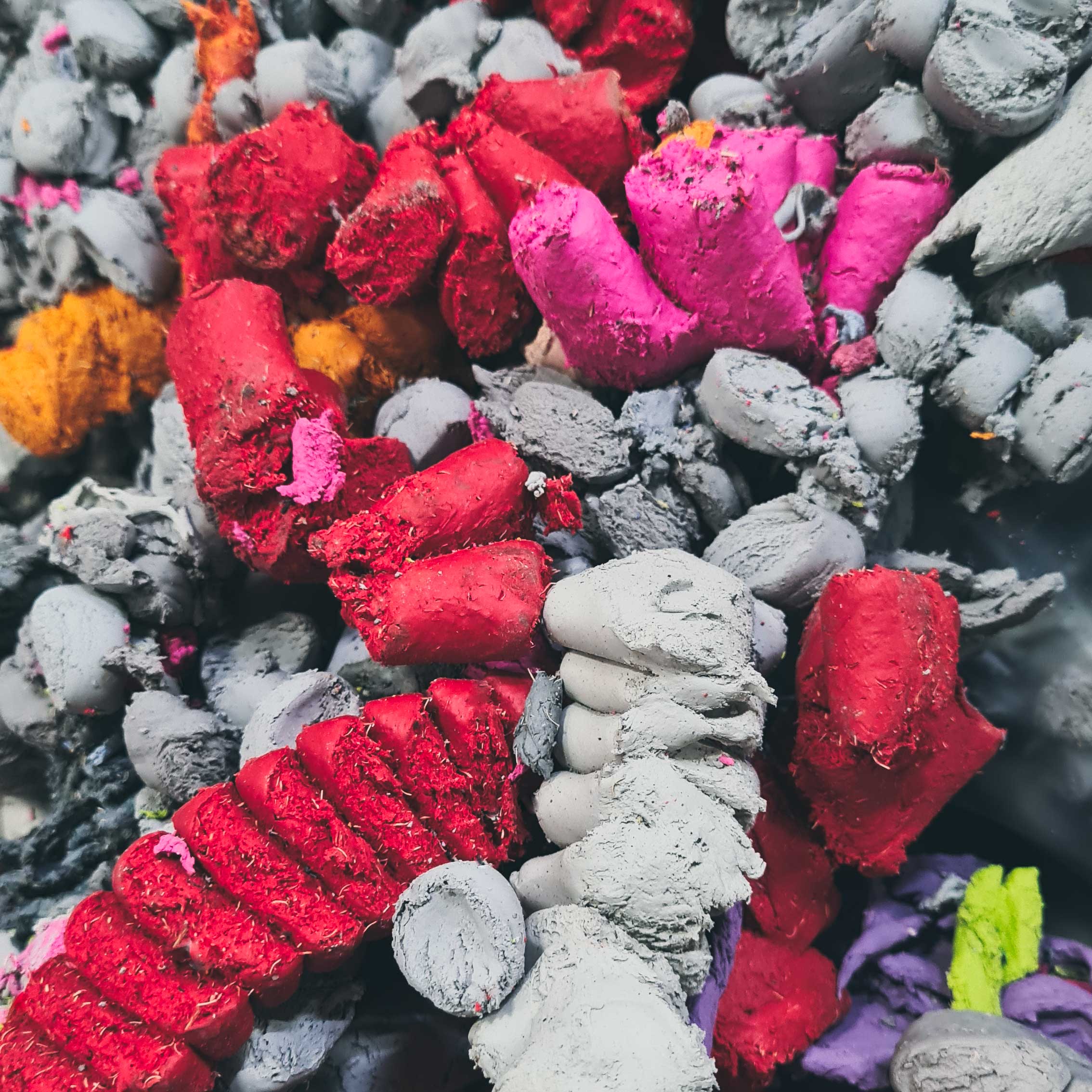
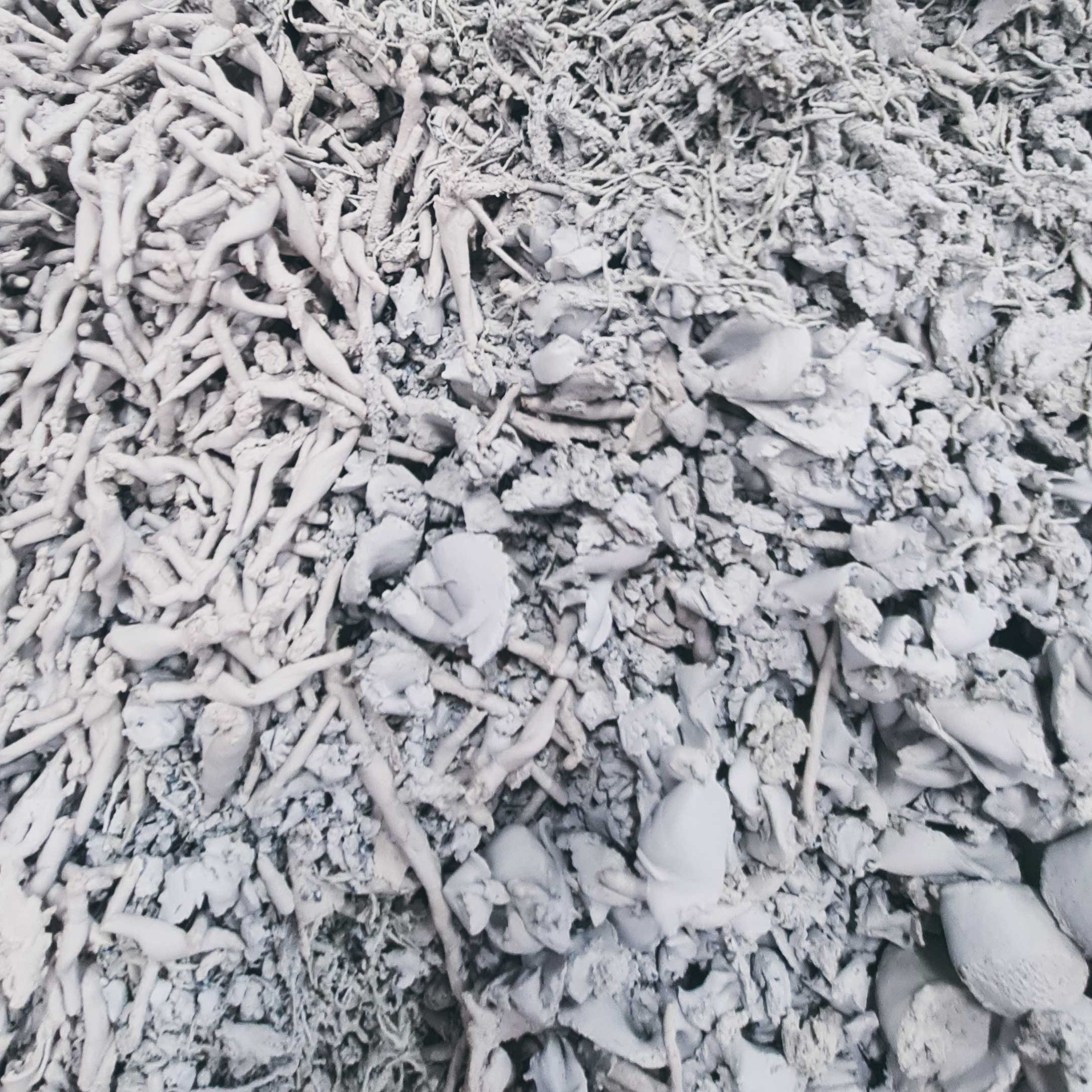

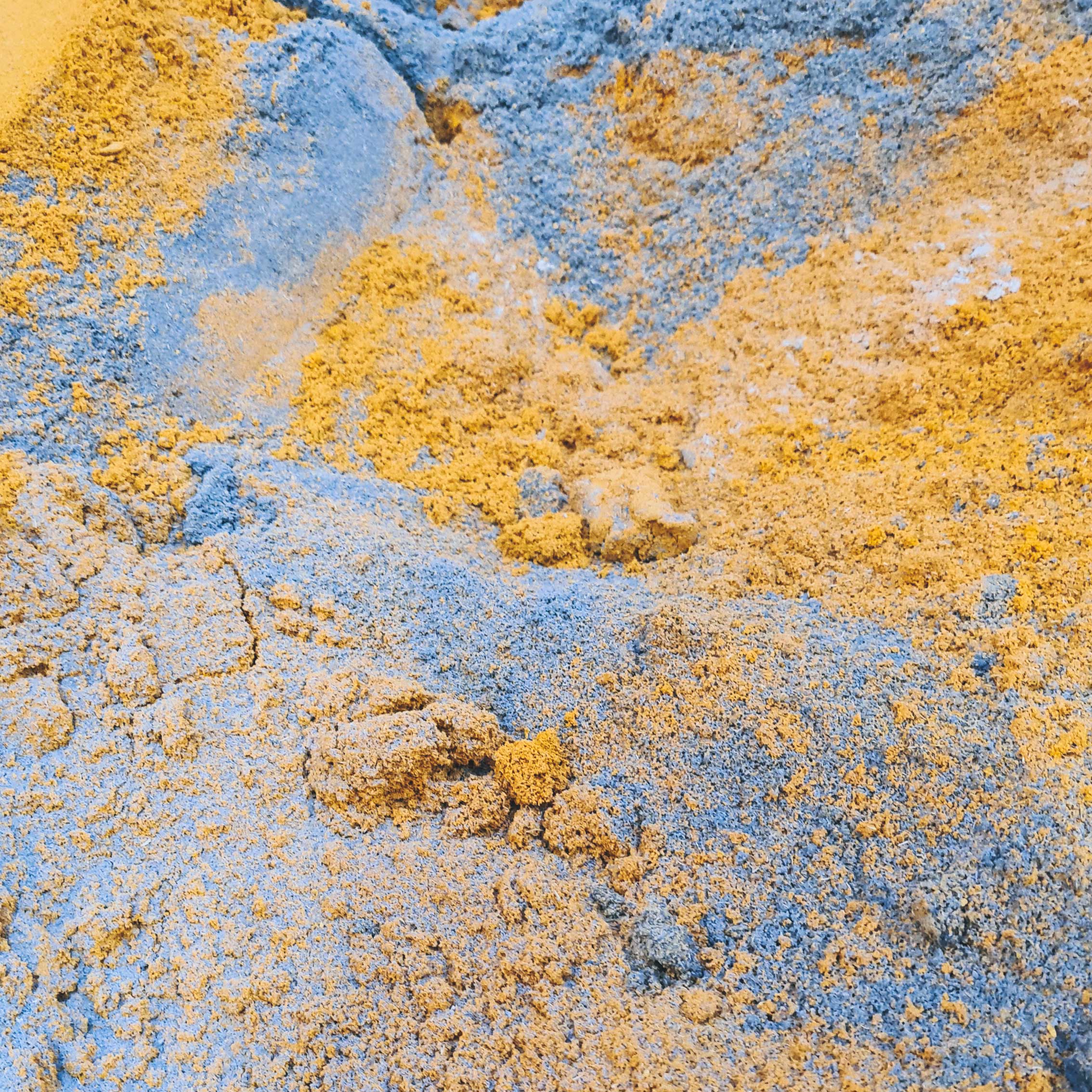
recycled = Marble powders / by-product = in-house scraps
Standard Flooring 2 mm
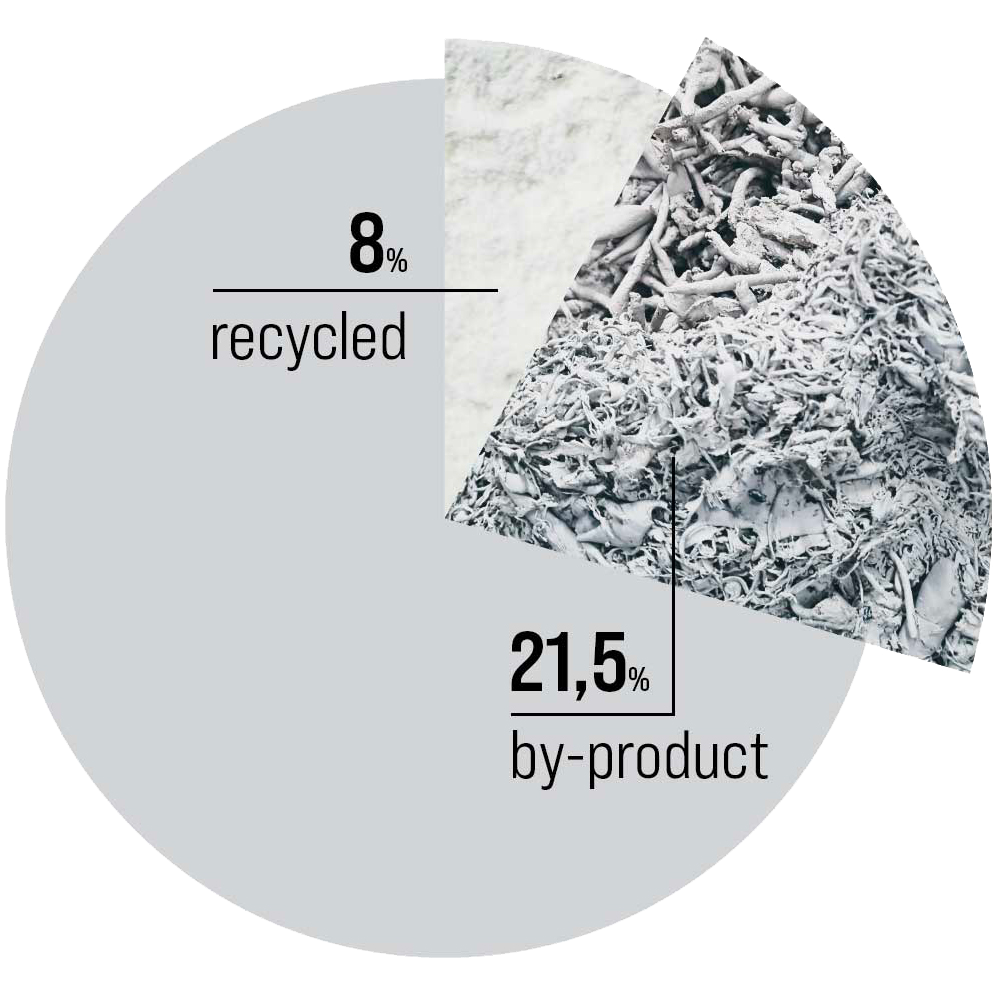
TOTAL 29,5%
Standard Flooring 3 mm
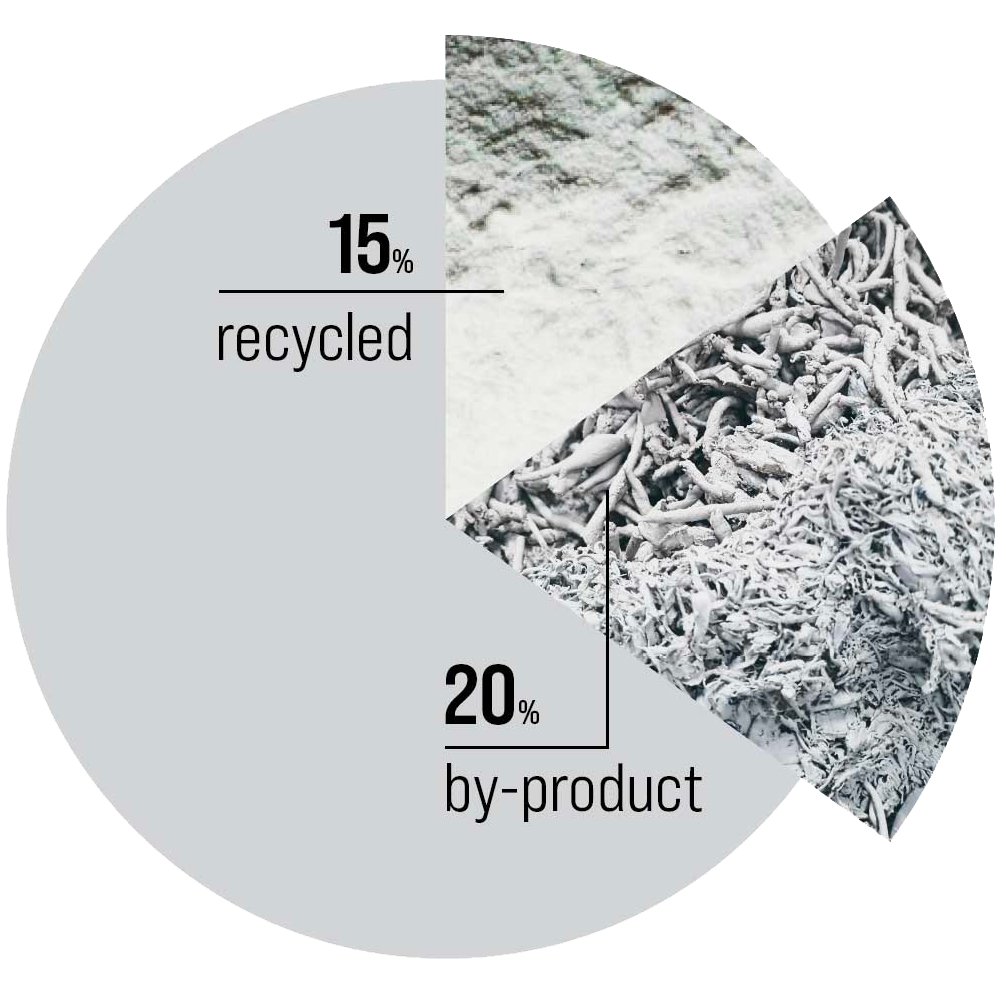
TOTAL 35%
Standard Flooring 3,5 mm
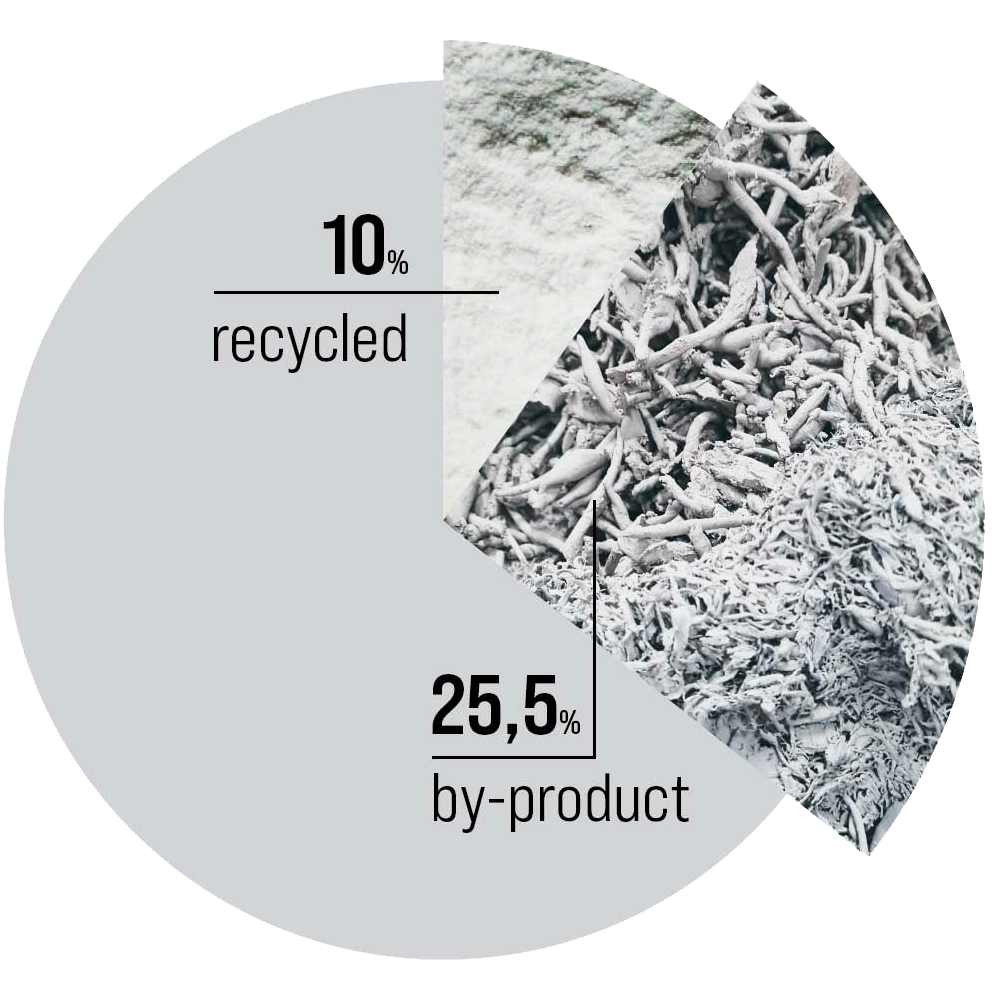
TOTAL 35,5%
Standard Flooring 5 mm
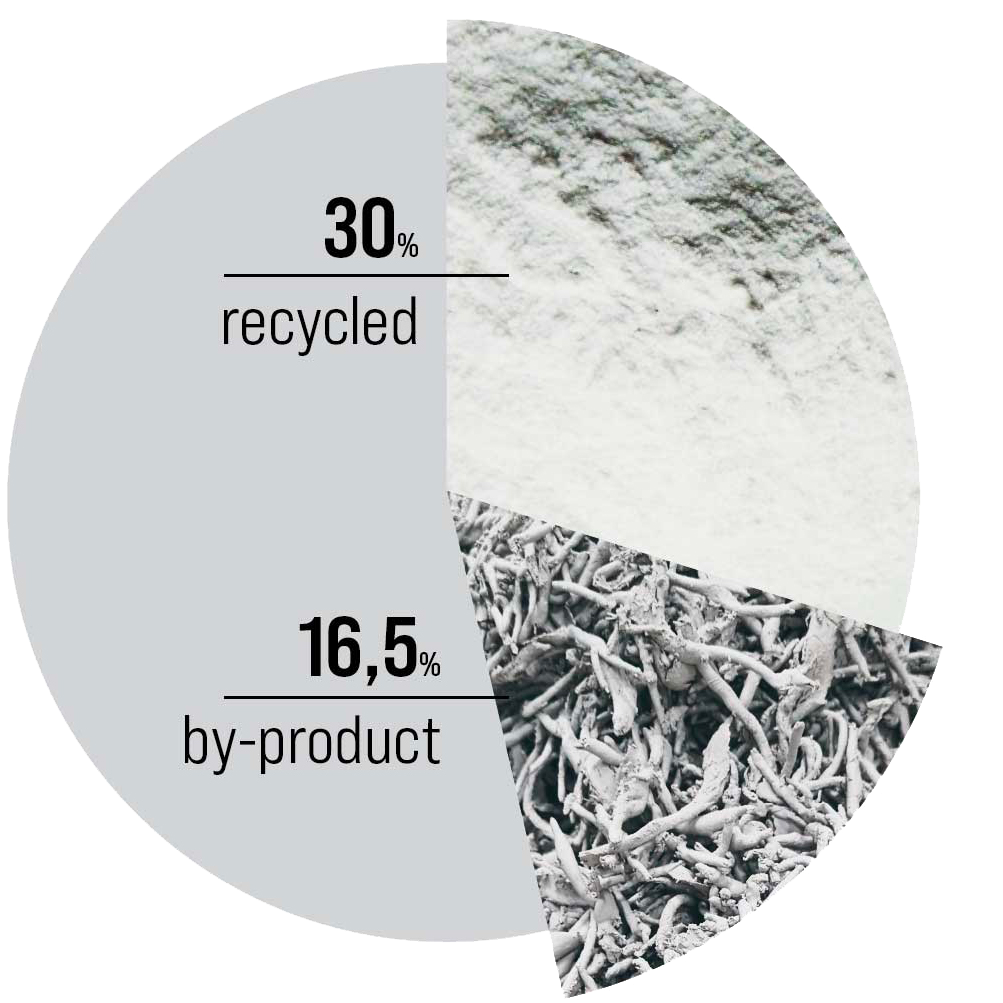
TOTAL 46,5%
*Compared to the previous version – with the exclusion of BS and Ant48 collections
A calculated value or index that makes it possible to compare the total amount of greenhouse gases that an activity, product, company or country adds to the atmosphere. Carbon footprints are usually reported in tonnes of emissions (CO2-equivalent) per unit of comparison. A product’s carbon footprint includes the emissions for the entire life cycle.
(or Phase A1-A3): it includes that first part of the life cycle of the product, which means a product’s environmental footprint up to the point where it leaves the factory gate: the transport of the ingredients from the supplier to the factory, the ingredients themselves and the energy used for production.
Environmental Product Declaration. The environmental product declaration is the tool used to communicate the potential environmental impacts calculated from the LCA. In an EPD, a product’s life cycle is sectioned into various stages of life, where each stage is further divided into specific activities. Each activity has the potential for environmental impact. For example, in the Product Stage, one of the activities to consider is manufacturing, where energy is required to produce your product. The EPD is defined by International Organization for Standardization (ISO) 14025 as a Type III declaration that quantifies environmental information on the life cycle of a product to enable comparisons between products fulfilling the same function.
Environmental, social, and governance is a set of aspects, including environmental issues, social issues and corporate governance that can be considered in investing. Investing with ESG considerations is sometimes referred to as responsible investing or, in more proactive cases, impact investing.
Greenhouse gases are gases in the atmosphere that raise the surface temperature of planets such as the Earth. What distinguishes them from other gases is that they absorb the wavelengths of radiation that a planet emits, resulting in the greenhouse effect. The Earth is warmed by sunlight, causing its surface to radiate heat, which is then mostly absorbed by greenhouse gases.
Global Reporting Initiative is an international independent standards organization that helps businesses, governments, and other organizations understand and communicate their impacts on issues such as climate change, human rights, and corruption. GRI provides the world’s most widely used sustainability reporting standards.
Global Warming Potential. Each greenhouse gas has a different potential to cause global warming, which complicates calculations. Therefore, all greenhouse gas emissions are converted into carbon dioxide equivalents (CO2 eq.), allowing for standardized calculations.
In the EPD (see EPD), the total GWP is reported in mass as kg CO2 eq. and, because the life cycle is divided into stages, you have the option to extrapolate data from any individual stage of life. For example, the Product Stage (listed as A1-A3), also known as the Cradle to Gate stage, is most often requested for these reasons:
• it includes all activities related to making and packaging the final product;
• it typically contributes the most environmental impacts;
• it is the easiest to use for product-to-product comparisons.
Science Based Targets is a corporate climate action organization providing companies with a clearly-defined path to reduce emissions in line with the Paris Agreement goals.
More than 4,000 businesses around the world are already working with the Science Based Targets initiative (SBTi). Science-based targets provide a clearly-defined pathway for companies to reduce GHG (greenhouse gas) emissions, helping prevent the worst impacts of climate change and future-proof business growth.
The Greenhouse Gas Protocol (GHG Protocol), an internationally recognized standard, created the three scopes to provide a full picture of a business or organization’s environmental impact.
Categorizing GHG emissions helps companies identify the origin of their emissions and subsequently develop effective strategies to reduce them. It also allows for benchmarking and comparison across industries and sectors, fostering transparency and accountability in corporate sustainability efforts.
"*" indicates required fields